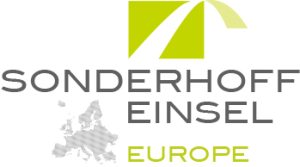CJEU referral of Munich Regional Court regarding the question of the legal validity of the patent in injunction proceedings
Munich I District Court, decision of 19.01.2021 – 21 O 16782/20
The 21st Civil Chamber of the Munich I District Court, which is responsible for patent law, referred the following question on the availability of preliminary injunctions in patent disputes to the Court of Justice of the European Union (CJEU) in Luxembourg in a so-called preliminary ruling dated January 19, 2021 (Case No. 21 O 16782/20):
Is it in line with Article 9(1) of Directive 2004/48/EC for the Higher Regional Courts having jurisdiction at final instance in proceedings for interim relief to refuse in principle to grant interim measures for infringement of patents if the patent in dispute has not survived opposition or nullity proceedings at first instance?
Directive 2004/48/EC concerns the enforcement of intellectual property rights.
Background:
Since the “Harnkatheterset” decision of the Düsseldorf Higher Regional Court (judgment of April 29, 2010, Case No. I-2 U 126/09), the granting of a preliminary injunction based on a patent has been governed by the principle that, in addition to a claim to an injunction (infringement of the patent) and grounds for an injunction (urgency), there must also be prima facie evidence that the legal validity of the patent for injunction is sufficiently assured. Accordingly, in order to establish sufficient prima facie evidence of the patent infringement, it is necessary that the legal status of the patent is sufficiently secured. This was generally affirmed if the patent had positively survived opposition proceedings or nullity proceedings. Deviations from this principle are only permissible in certain exceptional circumstances. For example, where the defendant has previously contributed its own third-party observations in respect of validity during the granting authority’s examination phase; where there is general recognition of the validity of the patent in the market – for example, where licenses have already been granted to well-known licensees and/or there is an absence of legal challenge to validity despite infringement litigation, where it is not appropriate for the applicant to wait for the outcome of the opposition or nullity proceedings due to extraordinary circumstances, e.g. due to the market situation. However, the exceptional cases are generally applied restrictively and are thus factually rather theoretical in nature.
With the decision “Leiterklemme” (judgment of December 12, 2019, Ref. 6 U 4009/19), the Munich Higher Regional Court also gave up its previous case law and followed the case law of Düsseldorf.
The existing case law of the Higher Regional Courts of Mannheim, Düsseldorf and Karlsruhe follows in particular from the fact that a considerable number of patents are either entirely or at least partially revoke or restricted in nullity proceedings before the Federal Patent Court (BPatG) or in opposition or appeal proceedings before the European Patent Office (EPO), but at the same time the economic impact of an preliminary injunction, which can be enforced without security, can be considerable for the defendant.
However, the District Court in Munich considers this practice to be incompatible with the Enforcement Directive 2004/48/EC (decision of January 19, 2021, Case No. 21 O 16782/20) and therefore contrary to European law.
In particular, this practice violates Art. 9(1) of the Enforcement Directive, which is intended to ensure that a provisional measure can be ordered to prohibit the continuation of a patent infringement. However, this would be made impossible, particularly in the case of patents that have just been granted, if first instance validity proceedings were required for this purpose. This is because both opposition and nullity proceedings are only possible after the patent has been granted, and thus patents that have just been granted may not yet have gone through these proceedings. Also, many patents granted some time ago have not yet gone through such first instance validity proceedings at the time of the request for the preliminary injunction, and also the patent proprietor could not have any influence on whether third parties file an opposition against the grant or file a nullity action. Thus, the enforcement of the patent by way of provisional measures is at the end hence not ensured.
In addition to the district courts in Düsseldorf, Mannheim and Karlsruhe, there are nine further district courts which have subject-matter jurisdiction for patent and utility model matters in the Federal Republic of Germany. Although these courts are generally called upon less frequently, the court in Hamburg, for example, does not seem to require the secured legal validity of the patent-in-suit as a rule so far.
Against the background of this inconsistent practice, it therefore seems to be the time that this practice will be clarified fundamentally before the European Court of Justice.
Dr. Petra Westphal

